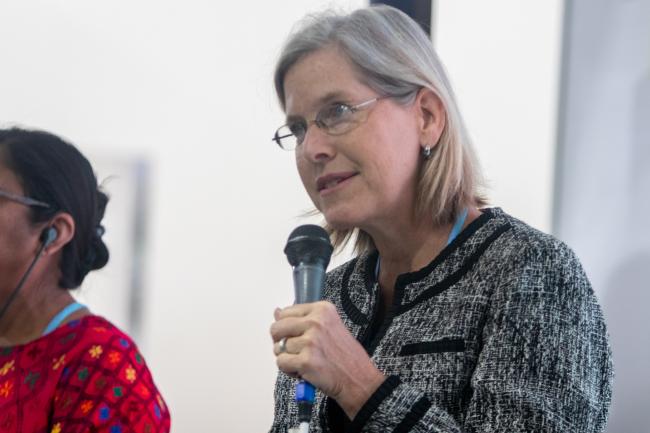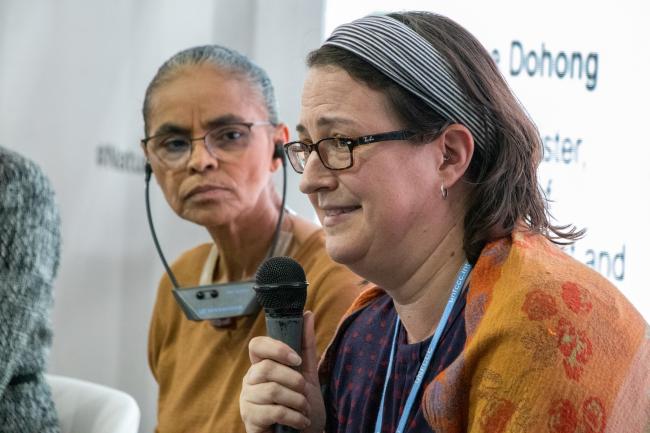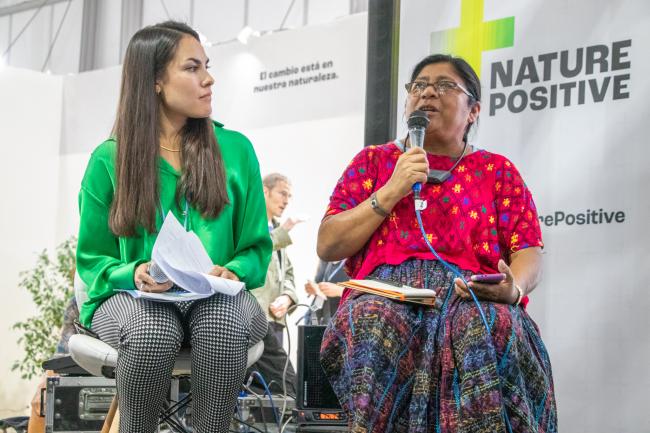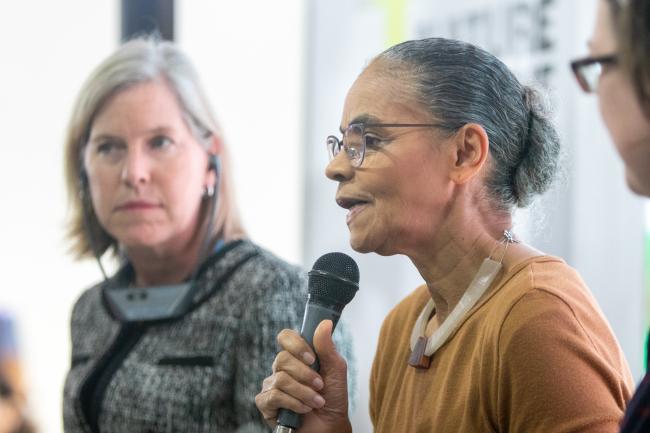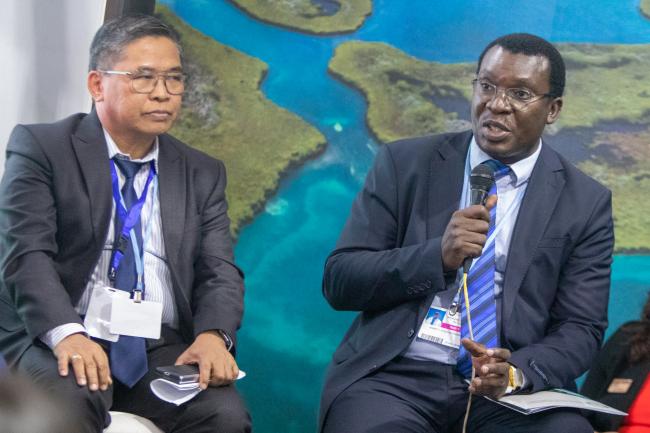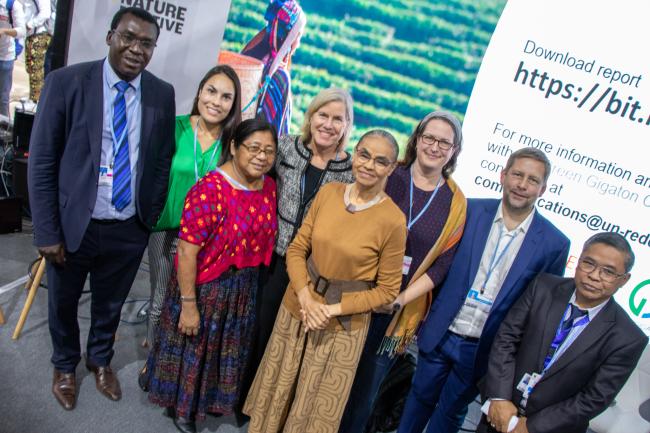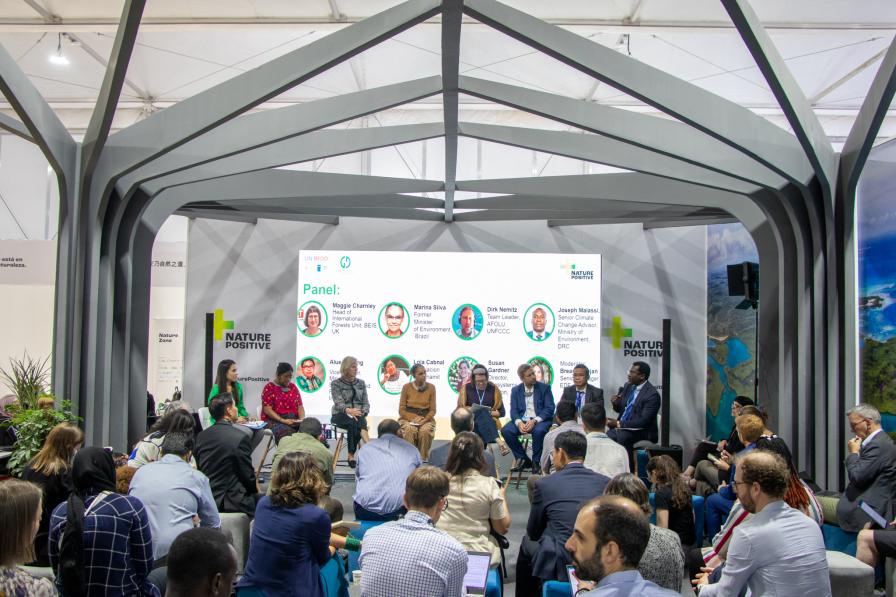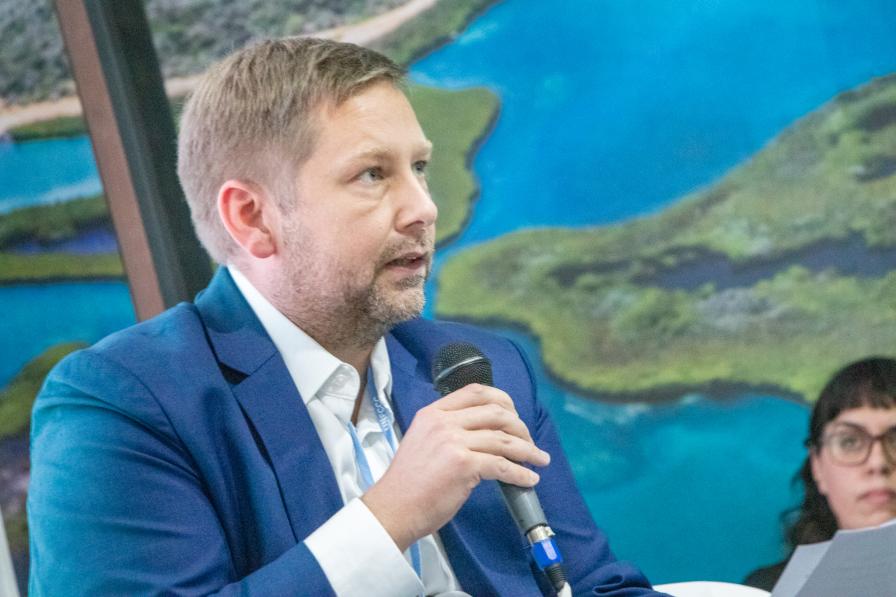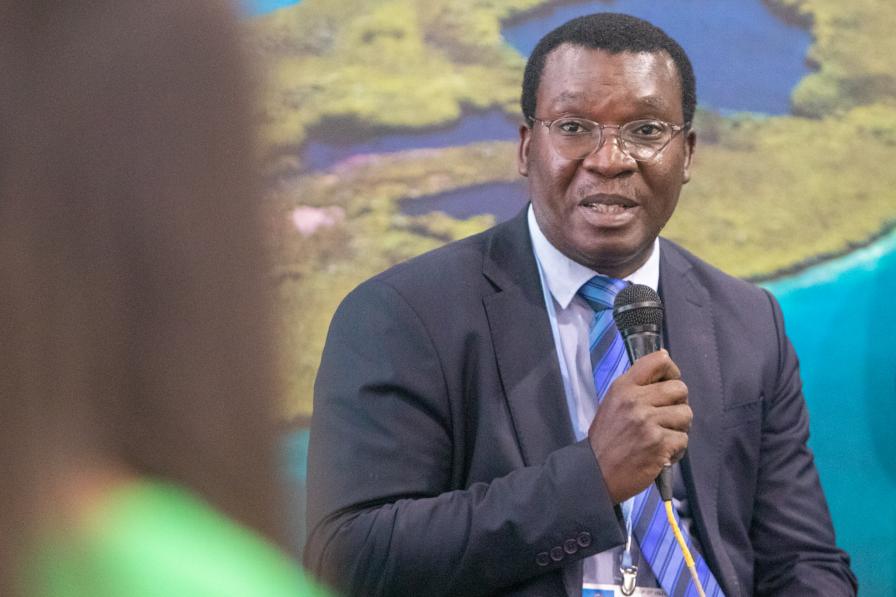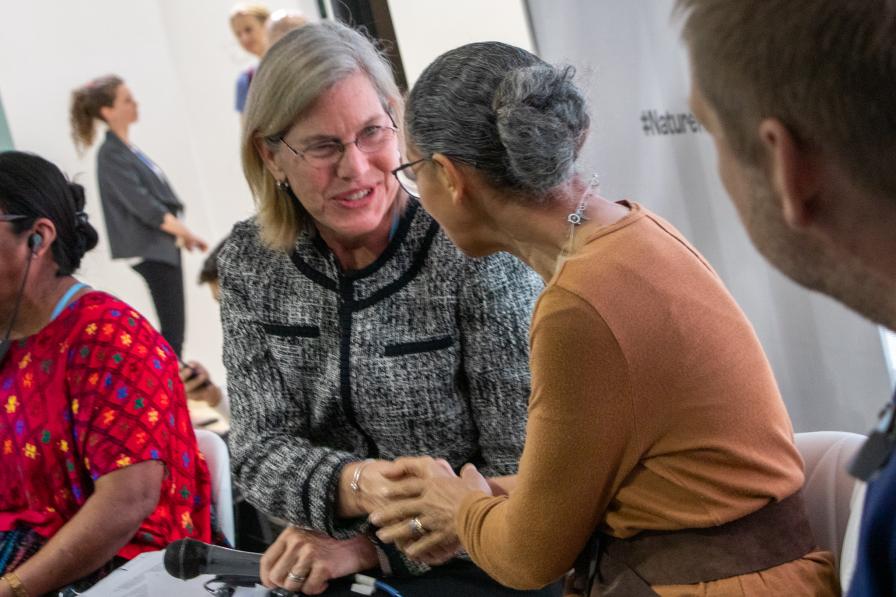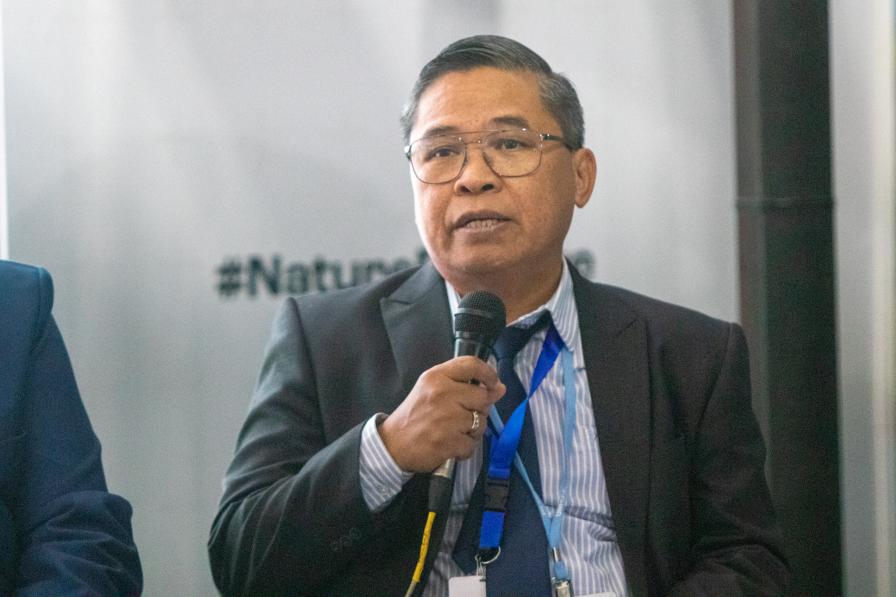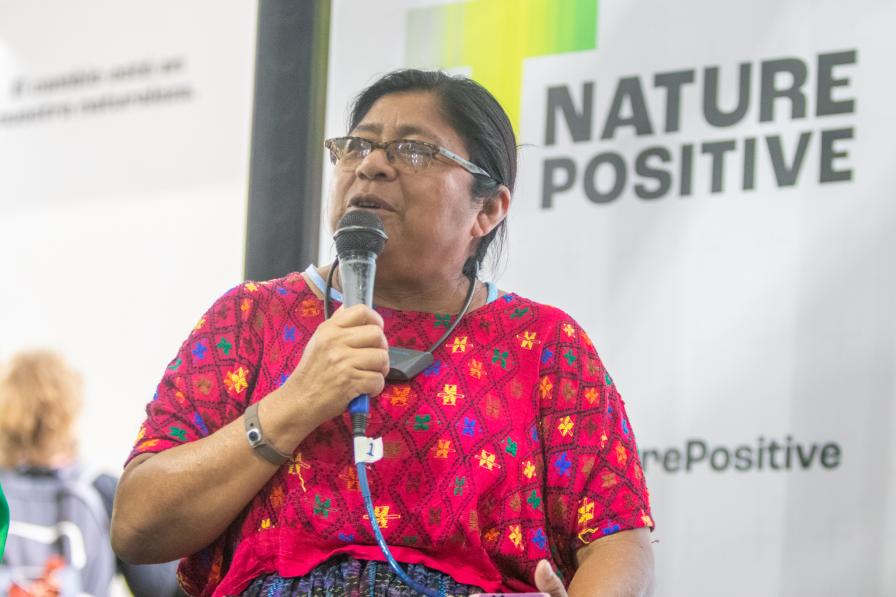About
A bold initiative was announced at a COP 27 side event: UN-REDD and the Green Gigaton Challenge seek to mobilize funding to achieve the crucial milestone of one gigaton of annual emissions reductions from forests by 2025, and annually after that. One gigaton is the equivalent of removing 80% of cars from roads in the United States.
The capacity of forests to absorb carbon emissions and help the world achieve the ambitious goals of the Paris Agreement is being undercut by rapid deforestation and degradation. This event, organised by the UN Programme on Reducing Emissions from Deforestation and Forest Degradation (UN-REDD) and the Green Gigaton Challenge, highlighted a new report, Making Good on the Glasgow Climate Pact. Together, they seek to mobilize funding to achieve the crucial milestone of one gigaton of annual emissions reductions from forests by 2025, and annually after that. One gigaton of annual emissions reductions is the equivalent of removing 80% of cars from roads in the United States.
Moderator Breanna Lujan, Environmental Defense Fund (EDF), introduced keynote speaker Susan Gardner, UNEP, who underscored that forests are a powerful nature-based solution with the potential to absorb 4 gigaton of carbon per year. She noted the “traction” gained from the Glasgow World Leaders’ Declaration on Forests and Land Use, and stressed that now is the time to translate net-zero targets into action. Gardner emphasized the need for commitments to a higher price for carbon and fair, results-based financing to establish a functioning carbon market, as well as ensuring the integrity of emissions reductions. “There is no room for greenwashing now,” Gardner said.
Maggie Charnely, Department of Business, Energy, and Industrial Strategy (BEIS), United Kingdom, highlighted the creation of the Forest and Climate Leaders Partnership to drive action and ensure commitments are in place. Transitioning to “high-integrity” carbon markets will help scale up results-based financing and enhance forest protection.
Dirk Nemitz, UNFCCC Secretariat, stressed that the current rate of forest loss “will cut our lifeline that forests can provide.” He highlighted three necessary actions: building political momentum to address deforestation by showing that pledges to protect forests are translated into action on the ground; a long-term perspective on results-based financing in which markets have reassurance that payments will be available; and metrics that assure accountability of pledges. Nemitz also emphasized that action must include developed countries and that we cannot “let the perfect become the enemy of the good,” as it is important to take action consistently and implement new methodologies quickly, before countries fall behind.
Lola Cabnal, Asociación Ak'Tenamit, emphasized that Indigenous Peoples should be “identified as strategic allies and as partners, not as beneficiaries.” She added that this means being included in policymaking, project programming and management, and implementation, which “would guarantee the fundamental role that we have, because it is important to strengthen the work that we do as Indigenous Peoples.”
Marina Silva, former Minister of Environment, Brazil, highlighted the need for resources and enforcement mechanisms to preserve forests. She noted that Brazilian President-elect Luiz Inácio Lula da Silva has promised enforcements to protect Indigenous Peoples, and pointed out that “if we do not protect the forests then we will pay for it.”
Alue Dohong, Vice Minister of Environment and Forestry, Indonesia, highlighted Indonesia’s extensive forest protection areas and ambitious mitigation targets, but pointed out the need for financing. Dohong emphasized that saving forests requires a “huge investment” because local people “need to develop other sources of livelihood so they can still keep the forest.”
Joseph Malassi, advisor to the Vice Prime Minister at the Ministry of Environment, Democratic Republic of Congo (DRC), concluded the panel by emphasizing that the tremendous amount of carbon absorbed by forests makes the DRC. However, he clarified that financing REDD+ is not tantamount to “begging for help”; there is a cost to stopping deforestation, and investing in those protections “is an investment in the credit system that belongs to all of us.” Malassi pointed out that: “All our countries’ boundaries are artificial. There is no boundary naturally. The Earth is one. We breathe the same air, the same oxygen. We all are in one system. It is time to think about it and start changing ourselves as well.”
Organizers: UN-REDD Programme
Contact: Florian Eisele I florian.eisele@un.org
For more information: www.unep.org/resources/report/making-good-glasgow-climate-pact-call-action-achieve-one-gigaton-emissions
To receive free coverage of global environmental events delivered to your inbox, subscribe to the ENB Update newsletter.
All ENB photos are free to use with attribution. For photos from this side event, please use: Photo by IISD/ENB | Matthew TenBruggencate.


